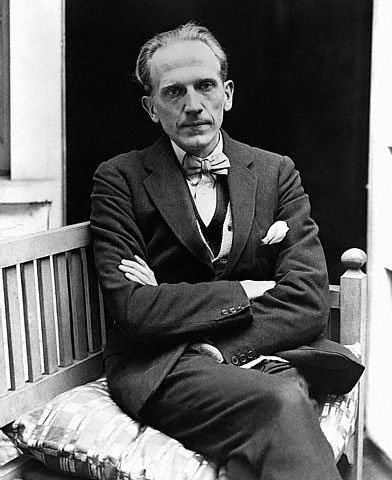Milne, A. A.: Micimackó (Winnie-the-Pooh Magyar nyelven)
Winnie-the-Pooh (Angol)CHAPTER 1
In Which
We Are Introduced to Winnie-the-Pooh and Some Bees, and the Stories Begin
Here is Edward Bear, coming down the stairs now,
bump, bump, bump, on the back of his head, behind Christopher Robin. It is, as far as he knows, the only way of coming downstairs, but sometimes he feels that there really is another way, if only he could stop bumping for a moment and think of it. And then he feels that perhaps there isn’t. Anyhow, here he is at the bottom, and ready to be introduced to you. Winnie-the-Pooh. When I first heard his name, I said, just as you are going to say, “But I thought that he was a boy?” “So did I,” said Christopher Robin. “Then you can’t call him Winnie?” “I don’t.” “But you said . . .” “He’s Winnie-ther-Pooh.Don’t you know what ‘ther’ means?” “Ah, yes, now I do,” I said quickly; and I hope you do too, because that is all the explanation that you are going to get. Sometimes Winnie-the-Pooh likes a game of some sort when he comes downstairs, and sometimes he likes to sit quietly in front of the fire and listen to a story.This evening . . . “What about a story?” said Christopher Robin. “What about a story/” I said. “Could you very sweetly tell Winnie-the-Pooh one?” “I suppose I could,” I said.“What sort of stories does he like?” “About himself.Because he’s that sort of Bear.” “Oh, I see.” “So could you very sweetly?” “I’ll try,” I said. So I tried. Once upon a time, a very long time ago now, about last Friday, Winnie-the-Pooh lived in a forest all by himself under the name of Sanders.
(“What does ‘under the name’ mean?” asked Christopher Robin. “It means he had the name over the door in gold letters, and lived under it.” “Winnie-the-Pooh wasn’t quite sure,” said Christopher Robin. “Now I am,” said a growly voice. “Then I will go on,” said I.) One day when he was out walking, he came to an open place in the middle of the forest, and in the middle of this place was a large oak tree, and, from the top of the tree, there came a loud buzzing-noise. Winnie-the-Pooh sat down at the foot of the tree, put his head between his paws and began to think. First of all he said to himself: “That buzzing-noise means something.You don’t get a buzzing-noise like that, just buzzing and buzzing, without its meaning something.If there’s a buzzing-noise, somebody’s making a buzzing noise, and the only reason for making a buzzing-noise that I know of is because you’re a bee.” Then he thought another long time, and said: “And the only reason for being a bee that I know of is making honey.” And then he got up, and said: “And the only reason for making honey is so as I can eat it.”So he began to climb the tree.
|
Micimackó (Magyar)Első fejezet, Íme, Medveczky Medve úr, amint bukdácsol lefelé a lépcsőn, kopogtatva feje búbjával, kipp-kopp, minden lépcsőfokon egy koppanás. Előtte Róbert Gida, az ő gazdája. Amennyire Micimackó értelme terjed, meg van győződve róla, hogy ez az egyetlen módja a lépcsőn való közlekedésnek. Néha ugyan kétség fogja el, mintha lehetne másképp is, de ezt csak akkor tudná megfontolni, ha egy pillanatra megállnának a lépcsőn, és módjában volna fontolgatni. Talán akkor se. - Micimackó. Amikor először hallottam a nevét, én is azt kérdeztem, amit ti akartok kérdezni: “Hát nem fiú? Azt hittem, fiú.” - Én is azt hittem - mondja Róbert Gida. - De hát akkor nem lehet Mici a neve! Mért hívod Micinek? - Nem én hívom... - De hát azt mondtad. - Mert úgy hívják. Nem érted, hogy úgy hívják? - De igen, hogyne - mondtam gyorsan, és remélem, hogy ti is befejezitek ezzel a kérdezősködést, mert bővebb magyarázat nem áll rendelkezésre. Egyébként Micimackó néha játszani szeret, néha pedig leül szemben a kandallóval, és ilyenkor mesélni kell neki. - Mesélünk? Micimackónak mesélj valami szépet - mondottad te. - Megpróbálhatom - mondottam én. - Milyen mesét szeret? - Mesét saját magáról. Ő már egy ilyen Mackó. - Értem. - De szépet! - Majd meglássuk - mondtam én. - Hát lássuk... Réges-régen, valamikor az ősidőkben, de legalábbis múlt péntek előtt, Micimackó egy erdőben élt, saját kunyhójában, Kovács János név alatt. (Mi az, hogy Kovács János név alatt? - kérdezi Róbert Gida. - Ezt úgy kell érteni, hogy ez a név állott az ajtaja fölött aranybetűkkel, és ő ott lakott. - Micimackó, azt hiszem, nem tudta ezt eddig - mondja Róbert Gida. - Most már tudom - feleli egy dörmögő hang. - Akkor talán folytatom - jegyzem meg kissé sértődötten.) - Egy napon, mikor kint sétált az erdőben, egy tisztásra ért, és a tisztás közepén állt egy jókora tölgy, és a tölgy koronájából hangos döngicsélés és zümmögés ütötte meg a fülét. Micimackó letelepedett a fa alá; mancsai közé fogta a fejét, és gondolkozni kezdett. Így kezdte: “Ez a döngicsélés jelent valamit. Olyan nincs, hogy csak döngicsélés van meg zümmögés, és az nem jelent semmit. Ha döngicsélés van meg zümmögés, akkor ez azt jelenti, hogy valaki vagy valami döngicsél, illetve zümmög, és amennyire az én műveltségem futja, az egyetlen elképzelhető ok, ami valakit döngicsélésre, illetve zümmögésre indíthat, abban a tényben leli magyarázatát, hogy az illető egy méhecske.” Azután még hosszasan gondolkozott, és így fejezte be: “Ami pedig azt illeti, ha valaki már méh, ezt a minőségét arra szokta felhasználni, hogy mézet készítsen.” Ezek után felállt, és így szólt: - A mézkészítésnek pedig egyetlen értelmes okát és célját abban látom, hogy én a mézet megegyem. És már kapaszkodott is a fára.
|



